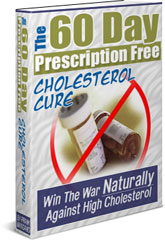|
Cholesterol Management >> Testing Cholesterol >>Cholesterol Home Testing
Testing at Home for Reduce Cholesterol
© 2005 - Mangano Publishing Inc.
Do you need to reduce cholesterol in your blood? An annual visit to the doctor’s office often requires a series of blood tests. One of these is looking for three specific numbers regarding your cholesterol levels. This blood test for cholesterol looks for a measurement of Low Density Lipoprotein (LDL), High Density Lipoprotein (HDL) and total cholesterol. Your doctor then can help you evaluate what these numbers mean.
The purpose of testing is to see that the bad cholesterol (LDL) is below 100 milligrams per deciliter of blood (mg/dL). It is also looking to see that the good cholesterol (HDL) is above 40 mg/dL. The goal in reducing cholesterol is that overall cholesterol is below 200 mg/dL. This test completed at the doctor’s office is usually done annually, so how can you be sure that all your efforts to reduce cholesterol are really working on a more frequent basis? The answer is home testing.
Home testing for reducing cholesterol is a good way to get a general picture of your progress, but should not be used in place of the testing done at the doctor’s office. The main reason for this is that home tests do not give specific readings and can give a false sense of cholesterol levels being acceptable. Instead of giving exact numerical readings, the home cholesterol tests simply state whether your cholesterol is in the “desirable,” “borderline-high,” or “high risk for heart disease” levels. Small changes in the numbers, which could be significant to overall progress, would not show up in a home test.
Another reason for not relying solely on home testing kits is that there are two ways to improve overall cholesterol. You may have lower cholesterol readings on your LDL, but HDL is not high enough. A home test would not tell you that you need to raise HDL cholesterol.
The home cholesterol testing kits can be obtained from a pharmacy without prescription for about $15. The test involves a finger prick and then testing blood on a treated strip of paper, much like a pH test. If the test indicates a borderline or high risk reading it is important to see your doctor to learn about how to reduce cholesterol. Your doctor may want to prescribe medication, but you can also reduce cholesterol naturally without drugs or negative side effects. Learn how in The 60 Day Prescription Free Cholesterol Cure.

|
“Discover How To Lower Cholesterol Naturally, Eliminate Harmful Prescription Drugs, And Maintain A Healthy, Stress-Free Life. A Simple But Incredibly Powerful Plan You Can Begin Using Today To Achieve Optimum Cholesterol Health! Click Here Now!” |
Copyright Notice - The above article is the copyrighted property of 60DaysToLowerCholesterol.com. This article may not be reproduced on another website, book, or publication without express written permission from Frank Mangano. Any reproduction of this article without the explicit written permission of Frank Mangano and 60DaysToLowerCholesterol.com is strictly prohibited.
© Mangano Publishing Corporation. All Rights Reserved
Testing Cholesterol Articles
Testing Cholesterol Articles
|
